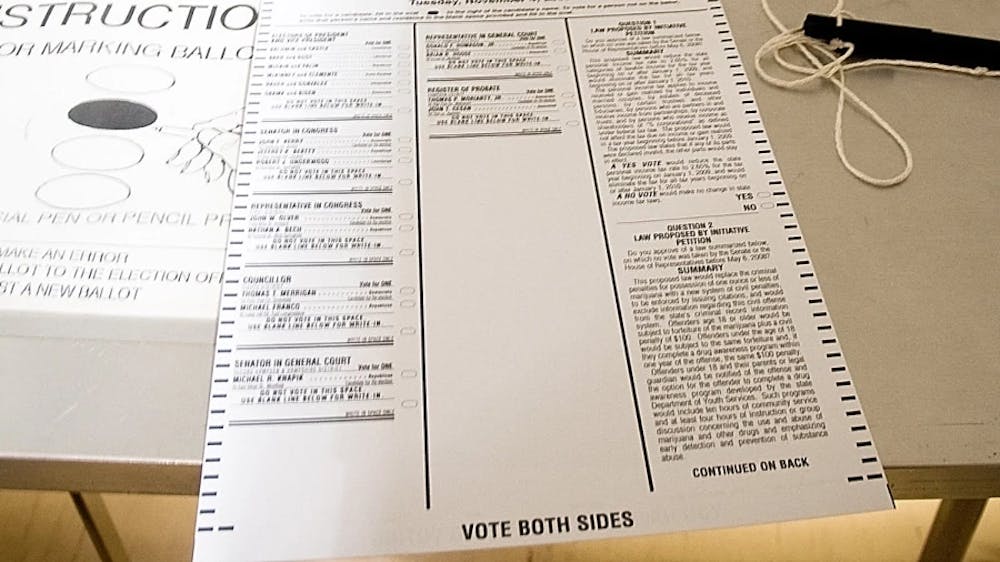Those in favor of a new law to limit the ways citizens can create legislature in Arizona enjoy a lead of almost 10 percent in the polls today, with only a third of the total ballots left to count, according to the state’s election results website.
Proposition 129 would hold citizen initiatives in Arizona to the single subject rule, meaning laws proposed by citizens may only address one issue per proposition.
This bill comes after a legal battle in 2016, when a citizen initiative included provisions for both a higher state minimum wage and increased paid sick time for workers.
The Arizona Supreme Court ruled then that citizen initiatives were not beholden to the single subject rule that legislators must follow.
Representative John Kavanagh, who sponsored Proposition 129, said its passage would protect citizens from logrolling, a practice where two unrelated measures are placed on the same initiative in hopes that support for one measure will outweigh public disapproval of the other.
Kavanagh said though today logrolling has not been an issue voters are concerned about, it’s worthwhile to take proactive steps to keep it from happening.
“It’s plausible that two groups that don’t have enough money on their own – because it’s expensive, nowadays you have to pay for petition gatherers usually – to pool their resources and put two disparate subjects on the same initiative,” he said. “It shouldn’t ever happen, and this will ensure that.”
Cathi Herrod, President of the Center for Arizona Policy Action, said Proposition 129 eliminates confusion at the ballot box for voters.
“This is a commonsense reform that helps voters become more educated and stops the confusion that comes with unrelated issues being voted on together,” Herrod said in the 2022 General Election Publicity Pamphlet, which included all initiatives that appear on the ballot and arguments for or against each one.
Melinda Iyer, policy director for nonpartisan organization Civic Engagement Beyond Voting, does not approve of the proposition, saying that it will prevent citizens from making their voices heard.
“It asks voters to cede their own rights away,” she said.
Iyer said the single subject rule made sense for legislators but not for citizens, who have significantly fewer resources. She said Proposition 129 is another barrier for citizens who want to participate in the lawmaking process.
“A citizen's initiative involves literal blood, sweat, and tears. Lawmakers know that it’s hard,” Iyer said. “Making it harder for people to make their own laws, we lose our democratic process.”
Kavanagh, however, said the proposition poses no threat to democracy in Arizona, and actually protects voters from possible corruption.
The proposition puts it up to the Arizona Supreme Court to ultimately decide what constitutes a single subject, Kavanagh said. If an initiative is sued for violating the single subject rule, the proponents may defend the initiative in court and they may appeal their case if it loses.
As of the current ballot count, Proposition 129 leads by a margin of about 10 percent, but that could change as more votes get counted.
The current count includes mostly early and mailed ballots, which are more likely to be cast by democratic voters, according to the Pew Research Center.
Final counts could take days to accurately report depending on how close the race is.

